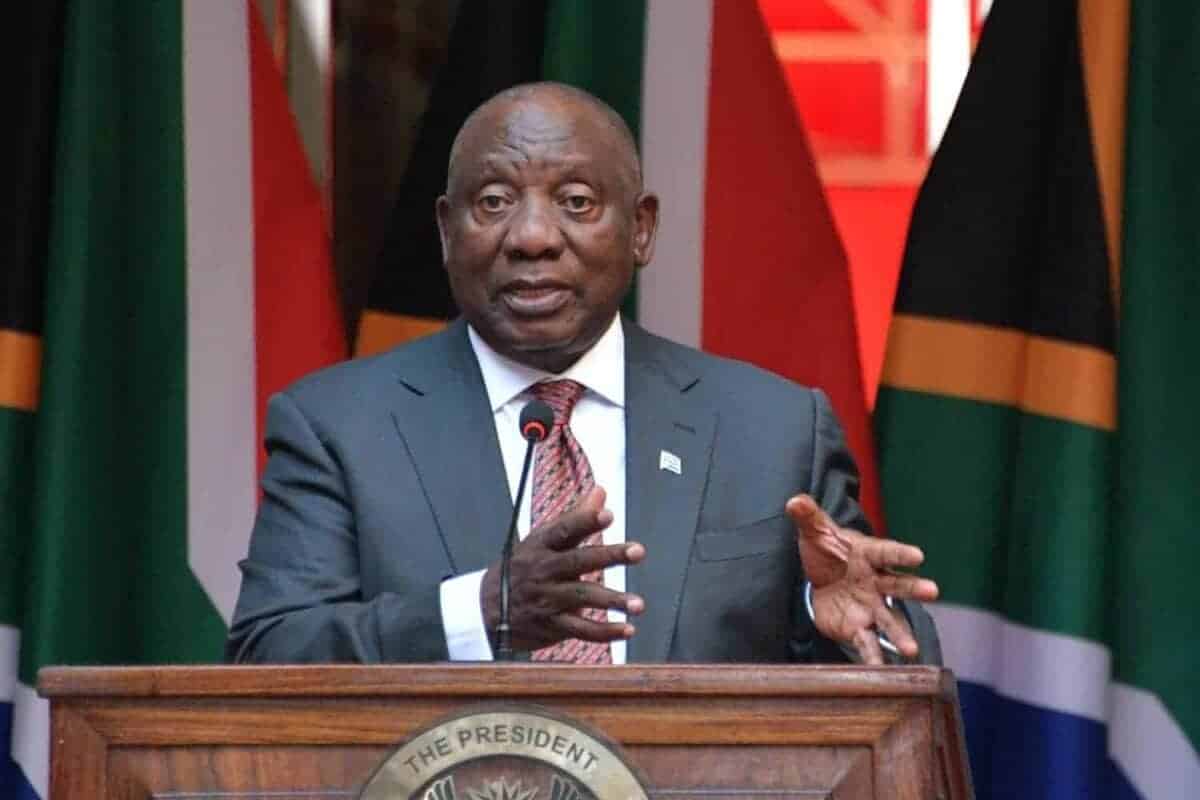Ramaphosa has pushed back against claims that inquiries are political theatre, urging patience as new probe begins into alleged police corruption.

As confidence in commissions of inquiries wanes among South Africans and calls for Police Minister Senzo Mchunu’s head to roll get louder, President Cyril Ramaphosa says punitive action would set a dangerous precedent.
Ramaphosa was delivering the Presidency budget vote before the National Assembly in Parliament on Wednesday, where he emphasised the necessity of establishing commissions.
Ramaphosa calls for due process in Mchunu scandal
“These allegations are serious. They are also untested,” Ramaphosa said, in reference to KwaZulu-Natal provincial police commissioner Lieutenant General Nhlanhla Mkhwanazi’s scathing claims that Mchunu has links to criminal gangs.
“It is therefore necessary that we establish the facts through an independent, credible and thorough process so that we can ensure accountability and safeguard public confidence in the police service,” the president said.
Ramaphosa established a commission of inquiry on Sunday to look into Mkhwanazi’s claims.
Acting Deputy Chief Justice Mbuyiseli Madlanga will chair the commission. In the meantime, Mchunu has been placed on leave of absence. Firoz Cachalia will be acting in his place.
Commission of inquiry criticism
The president’s decision has not fallen short of criticism.
The Walter & Albertina Sisulu Foundation accused Ramaphosa of governance through symbolism rather than substance.
“This is not new terrain – it is recycled theatre. We’ve seen this pattern repeatedly: announce a high-profile inquiry, delay real consequences, delegate moral responsibility to judges, and preserve executive distance from political accountability,” the foundation said.
Chairperson of the portfolio committee on police Ian Cameron lamented on Monday that despite senior police officials being linked to an organised criminal syndicate in Gauteng, no action will be taken against them for the next six months.
ALSO READ: Police Minister Senzo Mchunu placed on leave of absence
“To be honest, I lost my trust in commissions, without disregarding the new commission led by Judge [Mbuyiseli] Madlanga,” Cameron said.
“It would be unfair to criticise the new commission or to criticise him as a judge; you need to be given the opportunity… I think that, in essence, it seems to be what it has become.
“It makes sure that, for example, the president doesn’t need to make a decision; it makes sure that there are no immediate consequences for anyone implicated,” he added.
Ramaphosa highlights past outcomes
During Wednesday’s address, Ramaphosa said the view that other commissions and panels haven’t produced any real results was “wrong” and “not borne out of evidence”.
He noted the following commissions and the results they yielded:
2018 Commission on the South African Revenue Service (Sars), chaired by Judge Robert Nugent
- “The commission’s findings and recommendations resulted in a comprehensive overhaul of Sars’ leadership, governance structures and operational capacity. This has enabled Sars to significantly increase revenue collection, improve compliance and recover substantial sums of unpaid tax.”
Commission of Inquiry into the Public Investment Corporation, chaired by Judge Lex Mpati
- “… exposed serious governance failures and led to far reaching institutional reforms. These commissions resulted in disciplinary actions and the cancellation of unlawful contracts.”
High-Level Panel on the State Security Agency
- “… contributed significantly to SSA’s stabilisation and recovery, improved oversight and accountability, and the structural reforms contained in the General Intelligence Laws Amendment Act.
Expert Panel into the 2021 Civil Unrest
- “Following the recommendations… government has taken steps to ensure better intelligence coordination, capacitating public order policing, strengthening community policing forums and streamlining the functioning of the National Security Council.”
State Capture Commission
- “In the three years since the final report… was presented to the president, government has undertaken major reforms based on its recommendations.”
ALSO READ: Mchunu backs Ramaphosa’s move to launch inquiry, steps aside ‘with honour’
State capture
Lingering on the consequences of the State Capture Commission, Ramaphosa said eight new laws were passed to beef up anti-corruption institutions and to improve procurement systems and intelligence services.
He said nearly R11 billion in assets were recovered by March 2025 and another R10.6 billion remain frozen pending outcomes of court cases.
Ramaphosa also said there were criminal cases arising from the commission that have ended, all with guilty verdicts.
Other cases involving 51 individuals and 27 companies are currently enrolled in court, he added.
“These commissions and panels show a government that takes responsibility, that is committed to transparency and accountability, that does not fear independent scrutiny, and that is determined to take corrective action where lapses have taken place.”
NOW READ: Ramaphosa appoints Gwede Mantashe as acting police minister






